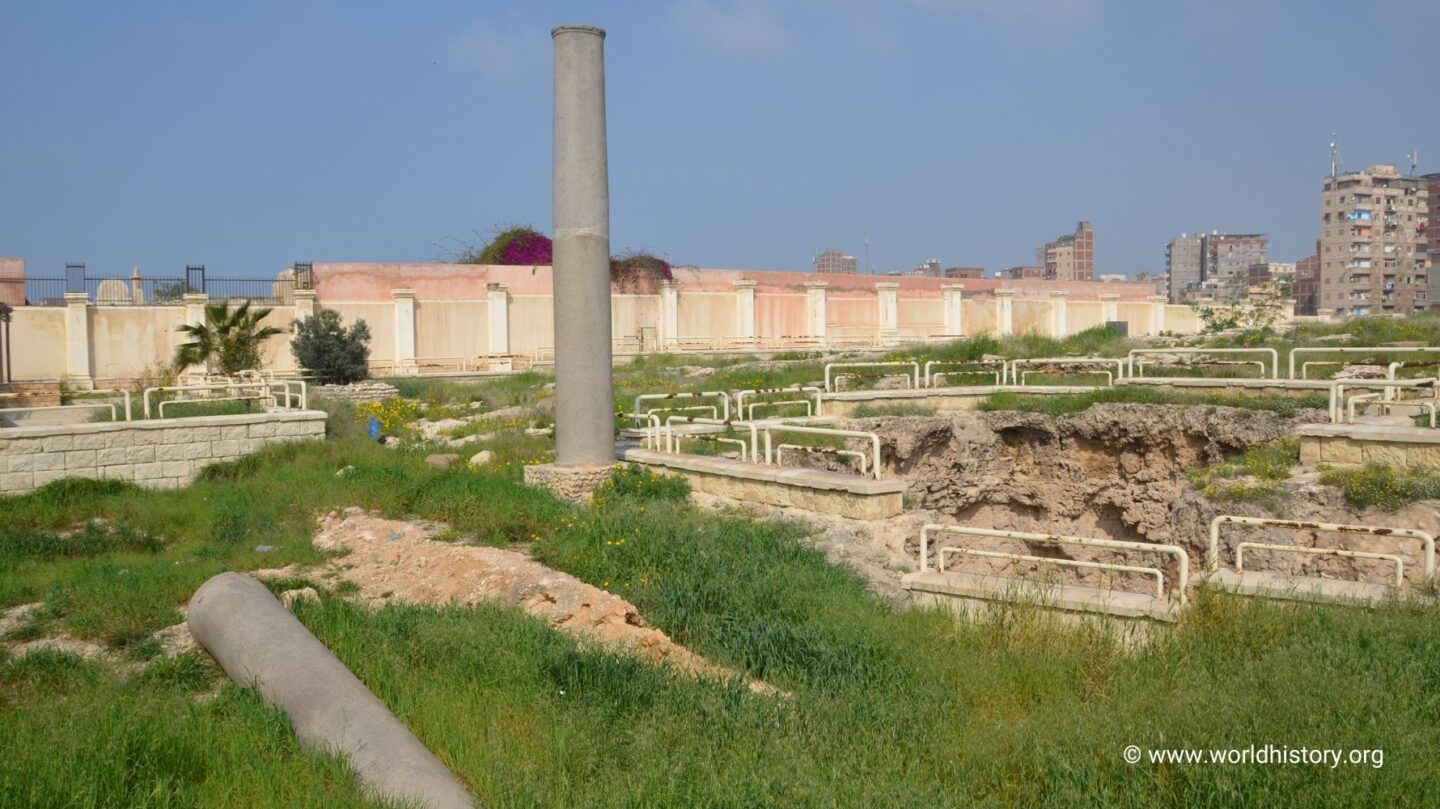The Birth of a Visionary Institution
The Library of Alexandria, located in the bustling city of Alexandria, Egypt, was one of the most renowned centers of learning in the ancient world. Founded during the reign of Pharaoh Ptolemy II Philadelphus (283–246 BCE), the library was part of a grand vision to collect all human knowledge and make it accessible to scholars from across the world.
The Ptolemaic rulers, who inherited Egypt after the death of Alexander the Great, sought to make Alexandria the intellectual and cultural capital of the Mediterranean. To achieve this, they established the Mouseion—a complex of learning and research—and its centerpiece, the Great Library. The library symbolized the Ptolemies’ ambition to preserve and advance knowledge, drawing scholars and thinkers from as far as India, Persia, and Greece.
A Repository of Knowledge
The Library of Alexandria aimed to collect every written work available, from literature and philosophy to science and mathematics. According to ancient accounts, the library may have housed up to 400,000 to 700,000 scrolls, though the exact number remains debated. Works by Homer, Plato, Aristotle, and many other great thinkers of the ancient world were reportedly stored within its walls.
To expand its collection, the library employed aggressive acquisition policies. Ships docking at Alexandria were required to surrender any manuscripts they carried. These were copied by scribes, with the originals often kept by the library and the copies returned to their owners. The library also sent emissaries to other regions to purchase or copy rare texts, ensuring its collection encompassed a diverse range of cultures and disciplines.
A Hub for Scholars and Innovation
The Library of Alexandria was not merely a storage space for scrolls; it was an active hub for intellectual exchange and innovation. Scholars from various disciplines gathered here to study, debate, and create. The Mouseion functioned much like a modern university, offering accommodations, stipends, and resources to resident intellectuals.
Some of the greatest minds of antiquity worked at the library. Eratosthenes, the librarian of Alexandria, famously calculated the Earth’s circumference with remarkable accuracy. Archimedes, a pioneer in mathematics and engineering, and Euclid, the father of geometry, are also associated with Alexandria’s intellectual tradition. The library fostered groundbreaking advancements in astronomy, medicine, and linguistics.
The Mystery of Its Decline
Despite its fame, the Library of Alexandria’s fate remains one of history’s enduring mysteries. Several theories suggest that the library was destroyed in a catastrophic event, but the truth may be more complex.
Some accounts attribute its destruction to Julius Caesar’s siege of Alexandria in 48 BCE, when a fire reportedly engulfed part of the city. Others blame later invasions by Christian and Muslim forces, who may have viewed the library’s pagan knowledge as heretical. However, many scholars believe the library’s decline was gradual, caused by political instability, neglect, and the shifting centers of learning over centuries.
A Legacy That Endures
Although the Library of Alexandria no longer exists, its legacy continues to inspire. It represents the pinnacle of intellectual ambition and the human desire to collect, preserve, and share knowledge. Its model influenced the development of libraries and academic institutions around the world.
In 2002, the Bibliotheca Alexandrina was established in Alexandria, Egypt, as a tribute to the ancient library. This modern institution aims to revive the spirit of its predecessor by fostering global knowledge exchange and serving as a beacon of learning.
A Wonder Beyond Time
The Library of Alexandria was more than a physical structure; it was a testament to the power of knowledge and the pursuit of intellectual excellence. Its story reminds us of the importance of preserving and sharing knowledge for future generations. Though lost to history, the library remains a symbol of humanity’s quest to understand and better the world, securing its place as one of the greatest wonders of the ancient world.
